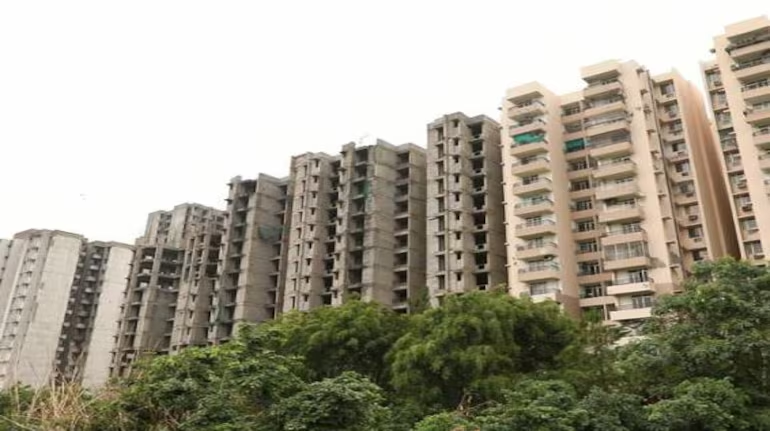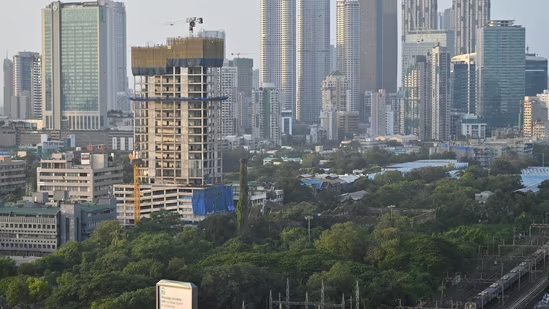Top Stories
Realty thumbs up to Jaitley’s maiden Budget


A majority of players associated with realty is enthused by some of the proposals related to the sector in the Union Budget 2014-15, presented by Finance Minister Arun Jaitley in the Lok Sabha on Thursday. Going by the initial responses received by Realty & More, it is thumbs up for Jaitley in his first major performance as FM.


Regarding the Budget proposal to spend Rs 7,060 crore for 10 smart cities, Sandhir said the initiative was laudable. ”This would have a positive impact on the real estate sector, as developers will be able to offer new projects in the upcoming cities boosting the social, economic infrastructure in the region and create new jobs. However, for the smoother execution of the target, existing land Act should be amended to make the acquisition easy and simpler.”
On the Government’s proposal to changes FDI norms for housing projects for the creation of smart cities, he said as foreign investors have become cautious, real estate developers in the country have to depend largely on domestic capital for a substantial part of the funding, which often covers the cost of land acquired, expenses during the approval of the project and the construction of units. “Keeping the larger vision of creating smart cities and housing for all, the Government has proposed the reduction in built-up area from 50,000 square metre to 20,000 square metre, and minimum capitalisation from 10 million to 5 million. This is definitely a positive step for housing sector. The reduction in built-up area and size of projects will allow mid-sized and smaller developers with good track records better access to foreign direct investment and boost affordable housing in the country. At present, group-housing projects (apartments) are eligible for FDI if the total built-up area is at least 50,000 square metres.
By the enhancement of personal tax exemption limit by Rs 50,000 to Rs 250,000 from Rs 200,000 and the increase of interest exemption limit on housing loan to Rs 2 lakh from Rs 1.5 lakh, the Government, he said, had shown its commitment to provide housing for all by 2022 and encourage people, especially the young, to own houses.
The RICS South Asia head said the decision to allow listings of Real Estate Investment Trusts (REITs) in India as an investment product will boost the liquidity situation of cash-starved developers, who are struggling to find funds for their construction activities. “This would also help boost the subdued investor sentiments in the country. The announcement will help in easing pressure on banks to fund real estate projects.”
The allocation of Rs 4,000 crore through National Housing Banking schemes would enable cheaper credit for affordable housing to the urban poor and buyers in the LIG and EWS categories, he said. “This will also enable the agencies to attract private developers into the development system, who have been shying away from affordable housing given the high cost of land and low margins in the segment,“ added Sandir.
Lastlly, he said the allocation of fund for urban infra projects will help improve the urban landscape and boost economic growth, employment and housing in our cities. Additionally, easing bank lending to infrastructure sector will further strengthen the efforts for improving country’s sector, he added.
Anuj Puri, chairman & country head, Jones Lang Lasalle (JLL) India, said the Finance Minister took a cautious, yet courageous path with his Budget announcement.
Regarding the allocation of Rs. 4000 crore for low-cost housing schemes, he said, “It is very positive that the Government has taken due note of the demand-supply mismatch in the LIG and EWS housing segments, and it remains to be seen how fast these initiatives hit the ground in real time.”
The benefit provided for the residential sector by increasing the individual income tax exemption limit from Rs. 2 lakh to Rs. 2.5 lakh, he said, “will increase disposable income of individuals and would have further implications on their ability to service home loans.”
Puri said construction costs have been rising at the rate of 17 per cent over the last three to four years, and this Budget has not provided enough measures to bring down these costs. “Contrary to expectations, material costs involved in real estate construction will remain high over the near-to-medium term, which is bound to put pressure on developers’ margins.”
As promised in the new Government’s manifesto, it has proposed the creation of 100 smart cities across India. The Budget has allocated Rs. 7060 crore towards this end, thereby giving a financial sign-off for this concept. Mr Purti said, “This will have very positive implications for real estate across all segments, namely residential commercial, retail and hospitality. Smart cities, by definition, imply considerable demand for technology-enabled services, and this is a big positive for IT/ITeS companies in India. Significantly, as much as one-third of the country’s demand for office space emanates from this sector.”
Overall, Mr Puri said, “The real estate sector’s expectations have definitely not been met completely in this Budget. However, given the economic situation prevailing in the country, this is not really surprising as the Government needs to balance myriad issues while addressing growth. We are satisfied at the real estate sector is once again headed in the right direction.”


Gaur said another part which will help the homebuyers is that home loan rate will reduce soon in near future and currently the Government has increased the tax exemption limit for interest payment on housing loan Rs 2 lakh now. However, he said there was no mention in the Budget regarding single- window clearance and infrastructure status.


The Budget has announced Rs 7060 crore to develop 100 smart cities in the country and Rs. 8000 crore for rural housing scheme. These proposals, he said, “will strengthen money liquidity as well as employment in the real estate industry. The Union Budget has also offered low-cost housing loan and tax exemption from Rs 1.5 lakh to Rs 2 lakh along with motivational Rs 50,000 crore investment for urban infra projects which stimulate buyers and investors to put money in residential and commercial projects that will boost the industry upwards after long term slowness. REITs and FDI are welcoming steps from the Government.”










For the real estate sector, Walker said the increase in interest tax deductibility on home loans and the increase in limits for the priority lending are welcomed as these will reduce the cost of finance. “The introductions of REITs is also welcomed as it eliminates duplication of taxation and so will lower cost of finance. This will help developers attract long-term funds from foreign investor community,” he added.


He said, the increase of the tax limit in the home loans will certainly benefit the buyers and will boost the sales. Although, he said, the industry was expecting a lot on other serious issues like single-window clearance and more but “overall this Budget is people-friendly.”




Specific to the real estate sector, the increase in limit for housing loan interest deduction from 1.5 lakh to 2 lakh is surely appreciated, though we had expected more than this to give the real boost to this sector. Another moving bit is the announcement of developing 100 smart cities which will surely engage the real estate market from tip to toe. I guess beyond these, there was not much focus given to this sector which is quite disappointing. A lot of us were looking forward to get a headway towards regulation and development Bill to set up a real estate regulator, but it seems this does not fall into Government’s list of priority as of now.”


Gaurav Gupta, general secretary, Raj Nagar Extension Association and director, SG Estates, said among the numerous challenges faced by realty sector, many have been addressed in the Budget. He said the focus of the Government towards proposing some growth-oriented policies for the real estate sector is appreciable.
Gupta said, “Easing tax norms for REIT, allocation of Rs.4,000 crore for affordable housing via the National Housing Bank will bring optimism in the real estate sector which will result in surging positive effects on the economy. Besides, a number of initiatives like the additional tax exemption on housing loan interest for self-occupied homes raised to 2 lakhs from the present rate of 1.5 lakhs, is also commendable and this will make it an interesting proposition for buyers, investors and developers.”
According to Gupta, metro cities will be benefited with a decrease in built-up area for FDI in real estate. “The development of smart cities along with industrial corridors will further give the fillip and will have multiplier effect. The proposed policies will encourage activity in real estate industry and bring a wave of fast-track development.”


-



 News3 weeks ago
News3 weeks agoKW Delhi 6 Mall Onboards New Brands
-



 News3 weeks ago
News3 weeks agoManasum Senior Living Launches IKIGAI GOA, A Senior Living Community in North Goa, in collaboration with Prescon Homes
-



 News2 weeks ago
News2 weeks agoGodrej Properties Sells Rs 3k cr+ Homes of Godrej Zenith, Gurugram, within 3 days
-



 News3 weeks ago
News3 weeks agoBridging India Divide: Top 5 Tier- 2 Cities to Focus On
-



 News3 weeks ago
News3 weeks agoCommercial Realty Gets Tech Savvy: Fast Construction, Enhanced Convenience
-



 News3 weeks ago
News3 weeks agoMultipoint Connection – A Definite Boon
-





 News2 weeks ago
News2 weeks agoRBI’s Status Quo on Key Policy Rates to Help Maintain the Real Estate Growth Momentum, Say Industry Stalwarts
-



 News3 weeks ago
News3 weeks agoSacred Cities See a Retail Boom as Spiritual Tourism Surge: CBRE Report

























